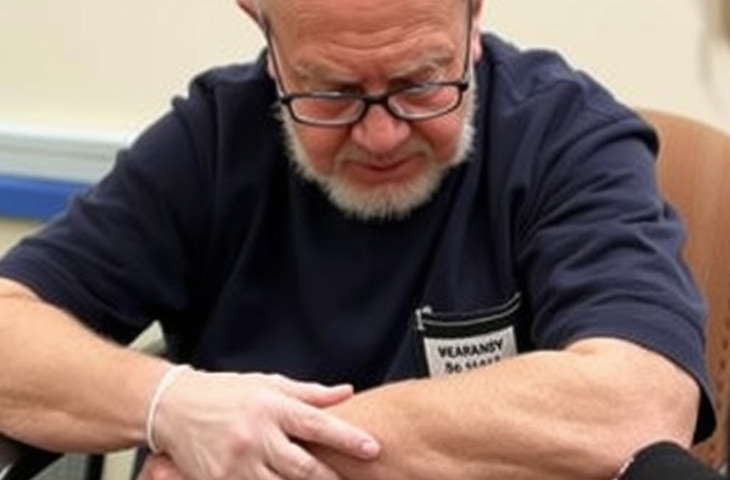Measles Returns: Should Seniors Be Concerned?

Measles risks for seniors are on the rise.
The resurgence of measles has been making headlines, raising concerns across various demographics. With kindergarten vaccination rates dipping, outbreaks are becoming more common, highlighting the importance of understanding the risks and implications, especially for seniors. This article aims to inform and provide guidance to seniors and their caregivers regarding the return of measles and its potential impact on older adults.
Health Risks for Seniors
Measles can have severe health consequences for people of all ages, but seniors may face heightened risks due to the natural weakening of their immune systems with age, rendering them less capable of effectively combating infections. Adults over 20, including seniors, are more likely to develop severe complications from measles, such as pneumonia and encephalitis, the latter being the swelling of the
brain.
Can Seniors Still Get Measles
Yes, seniors can still contract measles, especially those who may have waning immunity or were never vaccinated. According to Centers for Disease Control and Prevention (CDC), the measles virus is highly contagious, and pockets of unvaccinated individuals can lead to outbreaks. It's vital for seniors to know their measles immunity status.
Immunity Considerations for Seniors
Immunity from Past Exposure: For those born before 1957, it is generally assumed that they have natural immunity due to likely exposure to the measles virus during childhood, a time before widespread vaccination.
Immunity from Past Vaccination: Individuals vaccinated before 1968 might need to reconsider their immunity status. Early vaccines relied on an inactivated (killed) virus, which was less effective. Modern guidelines suggest that people vaccinated during that time should receive at least one dose of the live attenuated vaccine. Adults who were vaccinated between 1968 and 1989 might have received just one dose, which is less protective compared to the two-dose regimen recommended today.
Vaccination Recommendations
Given the resurgence of measles and the importance of protecting vulnerable communities, seniors should consider their vaccination status carefully. Revaccination is recommended for those who:
- Were vaccinated before 1968,
- Are unsure of their immunity status,
- Live in areas experiencing outbreaks,
- Travel internationally,
- Work in healthcare or are in close contact with immunocompromised individuals.
For most people, receiving two doses of the measles vaccine offers over 95% lifetime protection.
Strengthening Immune Health
Maintaining a strong immune system is crucial for seniors. Here are some general tips:
- Nutrition: Eat a balanced diet rich in fruits, vegetables, and whole grains.
- Exercise: Engage in regular physical activity suitable for your health status.
- Sleep: Ensure adequate and restful sleep.
- Hydration: Drink plenty of fluids.
- Regular Check-ups: Visit your healthcare provider for regular health assessments and to discuss vaccinations.
Avoiding Exposure
Apart from vaccination, seniors can take other measures to avoid exposure to measles:
- Stay Informed: Keep up-to-date with local outbreaks and public health recommendations.
- Limit Contact: Avoid areas with known outbreaks and large gatherings during such times.
- Travel Precautions: Take extra precautions when traveling to areas with a high incidence of measles.
- Good Hygiene: Practice good hygiene, including frequent handwashing and using hand sanitizers.
Conclusion
The return of measles is a significant public health concern, especially for seniors who may face greater risks of severe complications. Ensuring vaccination status, maintaining a healthy lifestyle, and taking preventative measures can significantly reduce the chances of contracting measles. By staying informed and proactive, seniors can protect themselves and contribute to the well-being of the community.
Popular Products
-
 Classic Oversized Teddy Bear
Classic Oversized Teddy Bear$23.78 -
 Gem's Ballet Natural Garnet Gemstone ...
Gem's Ballet Natural Garnet Gemstone ...$171.56$85.78 -
 Butt Lifting Body Shaper Shorts
Butt Lifting Body Shaper Shorts$95.56$47.78 -
 Slimming Waist Trainer & Thigh Trimmer
Slimming Waist Trainer & Thigh Trimmer$67.56$33.78 -
 Realistic Fake Poop Prank Toys
Realistic Fake Poop Prank Toys$99.56$49.78